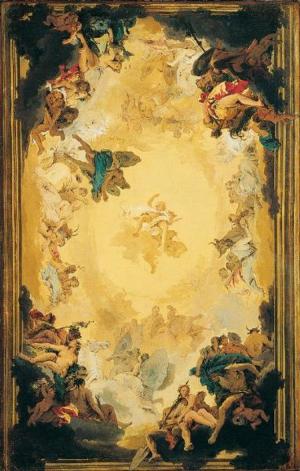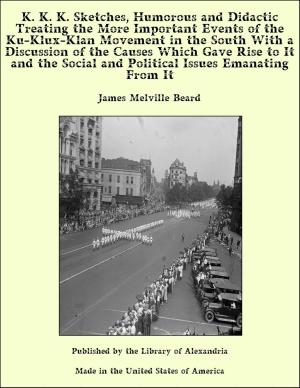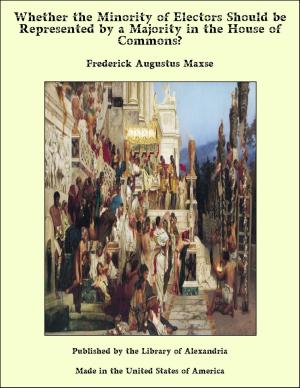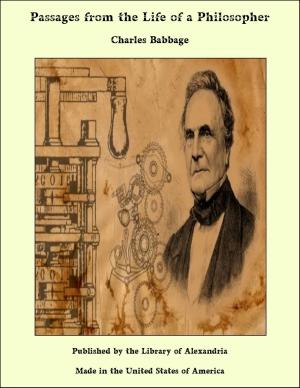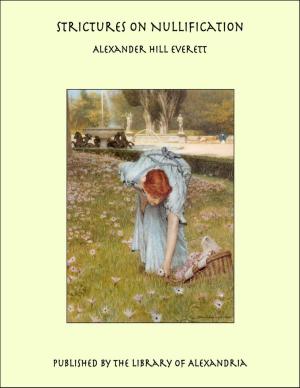The Idea of a University Defined and Illustrated
Nonfiction, Religion & Spirituality, New Age, History, Fiction & Literature| Author: | John Henry Newman | ISBN: | 9781465502353 |
| Publisher: | Library of Alexandria | Publication: | March 8, 2015 |
| Imprint: | Language: | English |
| Author: | John Henry Newman |
| ISBN: | 9781465502353 |
| Publisher: | Library of Alexandria |
| Publication: | March 8, 2015 |
| Imprint: | |
| Language: | English |
The view taken of a University in these Discourses is the following:—That it is a place of teaching universal knowledge. This implies that its object is, on the one hand, intellectual, not moral; and, on the Other, that it is the diffusion and extension of knowledge rather than the advancement. If its object were scientific and philosophical discovery, I do not see why a University should have students; if religious training, I do not see how it can be the seat of literature and science. Such is a University in its essence, and independently of its relation to the Church. But, practically speaking, it cannot fulfil its object duly, such as I have described it, without the Church’s assistance; or, to use the theological term, the Church is necessary for its integrity. Not that its main characters are changed by this incorporation: it still has the office of intellectual education; but the Church steadies it in the performance of that office. Such are the main principles of the Discourses which follow; though it would be unreasonable for me to expect that I have treated so large and important a field of thought with the fulness and precision necessary to secure me from incidental misconceptions of my meaning on the part of the reader. It is true, there is nothing novel or singular in the argument which I have been pursuing, but this does not protect me from such misconceptions; for the very circumstance that the views I have been delineating are not original with me may lead to false notions as to my relations in opinion towards those from whom I happened in the first instance to learn them, and may cause me to be interpreted by the objects or sentiments of schools to which I should be simply opposed. For instance, some persons may be tempted to complain, that I have servilely followed the English idea of a University, to the disparagement of that Knowledge which I profess to be so strenuously upholding; and they may anticipate that an academical system, formed upon my model, will result in nothing better or higher than in the production of that antiquated variety of human nature and remnant of feudalism, as they consider it, called “a gentleman.”(1) Now, I have anticipated this charge in various parts of my discussion; if, however, any Catholic is found to prefer it (and to Catholics of course this Volume is primarily addressed), I would have him first of all ask himself the previous question, what he conceives to be the reason contemplated by the Holy See in recommending just now to the Irish Hierarchy the establishment of a Catholic University? Has the Supreme Pontiff recommended it for the sake of the Sciences, which are to be the matter, and not rather of the Students, who are to be the subjects, of its teaching? Has he any obligation or duty at all towards secular knowledge as such? Would it become his Apostolical Ministry, and his descent from the Fisherman, to have a zeal for the Baconian or Other philosophy of man for its own sake? Is the Vicar of Christ bound by office or by vow to be the preacher of the theory of gravitation, or a martyr for electro-magnetism? Would he be acquitting himself of the dispensation committed to him if he were smitten with an abstract love of these matters, however true, or beautiful, or ingenious, or useful
The view taken of a University in these Discourses is the following:—That it is a place of teaching universal knowledge. This implies that its object is, on the one hand, intellectual, not moral; and, on the Other, that it is the diffusion and extension of knowledge rather than the advancement. If its object were scientific and philosophical discovery, I do not see why a University should have students; if religious training, I do not see how it can be the seat of literature and science. Such is a University in its essence, and independently of its relation to the Church. But, practically speaking, it cannot fulfil its object duly, such as I have described it, without the Church’s assistance; or, to use the theological term, the Church is necessary for its integrity. Not that its main characters are changed by this incorporation: it still has the office of intellectual education; but the Church steadies it in the performance of that office. Such are the main principles of the Discourses which follow; though it would be unreasonable for me to expect that I have treated so large and important a field of thought with the fulness and precision necessary to secure me from incidental misconceptions of my meaning on the part of the reader. It is true, there is nothing novel or singular in the argument which I have been pursuing, but this does not protect me from such misconceptions; for the very circumstance that the views I have been delineating are not original with me may lead to false notions as to my relations in opinion towards those from whom I happened in the first instance to learn them, and may cause me to be interpreted by the objects or sentiments of schools to which I should be simply opposed. For instance, some persons may be tempted to complain, that I have servilely followed the English idea of a University, to the disparagement of that Knowledge which I profess to be so strenuously upholding; and they may anticipate that an academical system, formed upon my model, will result in nothing better or higher than in the production of that antiquated variety of human nature and remnant of feudalism, as they consider it, called “a gentleman.”(1) Now, I have anticipated this charge in various parts of my discussion; if, however, any Catholic is found to prefer it (and to Catholics of course this Volume is primarily addressed), I would have him first of all ask himself the previous question, what he conceives to be the reason contemplated by the Holy See in recommending just now to the Irish Hierarchy the establishment of a Catholic University? Has the Supreme Pontiff recommended it for the sake of the Sciences, which are to be the matter, and not rather of the Students, who are to be the subjects, of its teaching? Has he any obligation or duty at all towards secular knowledge as such? Would it become his Apostolical Ministry, and his descent from the Fisherman, to have a zeal for the Baconian or Other philosophy of man for its own sake? Is the Vicar of Christ bound by office or by vow to be the preacher of the theory of gravitation, or a martyr for electro-magnetism? Would he be acquitting himself of the dispensation committed to him if he were smitten with an abstract love of these matters, however true, or beautiful, or ingenious, or useful

